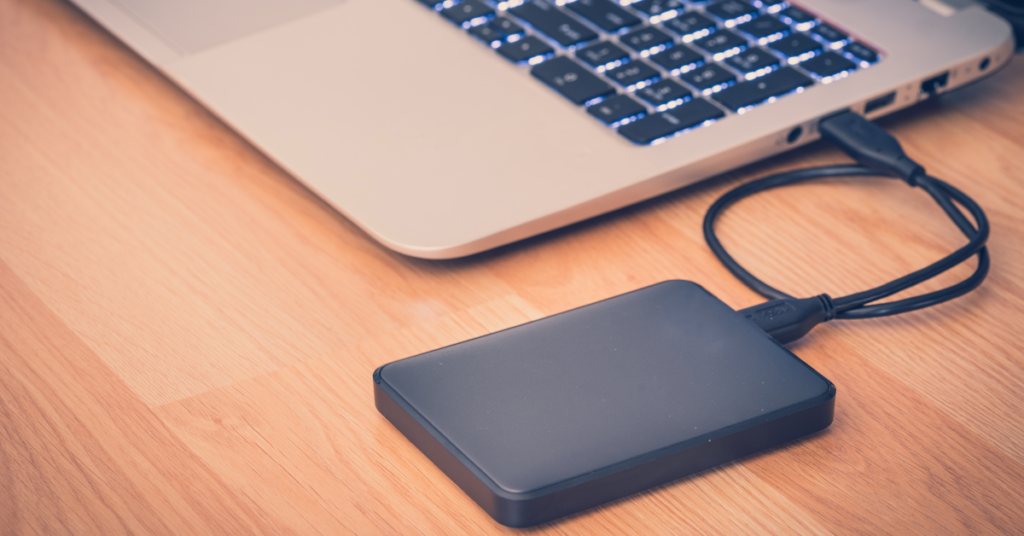Table of Contents
Hard drive failure symptoms are the signs that indicate that your hard drive is about to fail. so, how to tell if your hard drive is failing?.
Hard drives are known to be reliable, but there is always a risk of the hard drive failing. Regardless of the type of drive you have, your computer usually sends you hard drive failure warning signs (hard drive failure symptoms) to warn you of an impending hard drive failure.
These symptoms can be physical or software based. Some common physical signs include excessive noise, clicking or beeping sounds, and overheating. Software-based symptoms include system crashes, slow performance, and the inability to access certain files or folders.
In this article, we present 5 of these different warning signs of hard drive failure in order to avoid unpleasant surprises. If you’re curious to know hard drive failure signs to watch out for, keep reading!
5 Early Signs of Hard Drive Failure To Tell if Your Hard Drive is Failing
It’s important to note that some of these Hard Drive Failure Symptoms may also be caused by other issues, such as software problems or viruses. However, if you are experiencing multiple symptoms or if the symptoms are severe, it is best to seek the help of a professional. Taking action early by knowing hard drive failure signs before crash can help to prevent data loss and minimize the risk of a complete hard drive failure.

Following are the 5 hard drive failure symptoms / warning signs of hard drive failure that you need to know;
1. The Computer Makes Strange Noises
When the hard disk head hits the platter or the mechanical parts of the head are faulty, you sometimes hear a loud clicking sound coming from inside the disk. These noises occur when you start, restart or simply load a program. Such a phenomenon is a clear sign that the hard drive is about to fail imminently. You can protect your data by placing it on an external hard drive.
2. Hard Drive Sometimes Not Detected
One of the most common warning signs of hard drive failure of a failing disk is that the computer simply no longer recognizes the disk. If the disk is the primary boot drive, you will not be able to start the computer. If it’s a secondary drive, you won’t see the drive letter listed when you search for your drive. If your drive is no longer detected, it is most likely damaged. undetected drives are often damaged beyond repair.
3. The Time To Open Files Or Folders Is Extended
Your computer may take several minutes to open a file that normally opens quickly. In some cases, the file does not open and a blue screen appears instead. Slow boot times are also signs of disk failure because essential files have been corrupted or gone missing.
A healthy hard drive opens files swiftly, but impending failure can lead to prolonged file access times or, in severe cases, a blue screen appearance. Slow boot times are additional red flags indicating corrupted or missing essential files, warranting immediate attention to prevent a complete crash.
You must then think about having your disk repaired, replaced or buying new ssd hard drive.
4. Check Disk Tools Show Bad Sectors
There are several error checking tools, but Windows has its own tool included in the operating system. You can find this tool by:
- Right clicking on the disk in “My Computer” and
- selecting “Properties”.
- Click on the “Tools” tab and
- Click on “Check Now”.
Windows scans the drive for errors and reports that you have serious problems with the drive. If the scan reports bad sectors, indicating areas no longer capable of storing data, it’s a clear indication that your hard drive is on the brink. Addressing this promptly is essential to thwart potential data loss.
5. Files Are Corrupted Or Missing
Hard drives store data in a specific location which is then used to retrieve the data when you need it. If the hard drive is failing, your computer may show the icon for a file, but not be able to open it. Instead, the computer randomly returns an error indicating that the data is invalid or corrupt.
Other Hard Drive Failure Symptoms
Look for bad sectors and SMART error codes in addition to the symptoms already mentioned. Data loss may result from bad sectors, or parts of the disk that cannot hold data. Hard disk built-in feature, SMART error codes, can identify possible issues and should not be disregarded.
- other symptom of hard drive failure is the presence of bad sectors, which are areas of the disk that are no longer able to store data. This can lead to data loss and can be a sign that the hard drive is about to fail.
- Another symptom that can be an indicator of hard drive failure is the presence of SMART error codes. SMART (Self-Monitoring, Analysis and Reporting Technology) is a feature built into hard drives that monitors various parameters of the hard drive and can detect potential problems.
- Another symptom that can indicate hard drive failure is the presence of Blue screen of death, this can be caused by hard drive failure, it’s a sign that the hard drive is not working properly.
Hard drives are very valuable electronic devices. You need to take care of them to prolong their lifespan. We hope this article helps you spot the warning signs of hard drive failure! If you need more information on a hard drive failure symptoms, consider seeking the advice of an IT professional.
